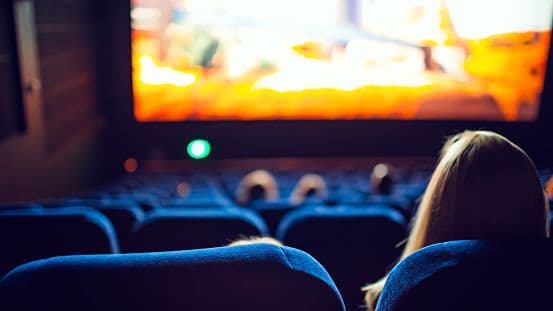
Soundtrack Showcase: The Power of Music in Film
Music has always been a powerful tool in storytelling, and the film industry is no exception. From classic Hollywood musicals to modern blockbusters, the soundtrack plays a crucial role in setting the tone and creating a memorable experience for audiences. In this blog, we'll explore the power of music in film, and examine how it contributes to the overall storytelling experience.
One of the most important functions of music in film is establishing mood and atmosphere. A powerful soundtrack can evoke emotions and transport audiences to another time and place, making them feel as though they are part of the story. For example, the ominous score in a horror film creates tension and suspense, while a romantic ballad can evoke feelings of love and longing. The music in a filmyzilla hd film can also reflect the character's emotions, such as the upbeat and energetic soundtrack in a coming-of-age story, which captures the energy and excitement of youth.
Music in film can also help to advance the plot and provide commentary on the action. For example, the use of a diegetic soundtrack (music that is part of the story world) can reveal important information about the characters and their motivations. A scene in which a character is listening to music can also provide insight into their personality and state of mind. In addition, the use of a non-diegetic soundtrack (music that exists outside of the story world) can provide commentary on the action, emphasizing key moments and adding depth to the storytelling.
Another important aspect of music in film is its ability to create memorable moments. A well-crafted soundtrack can provide a memorable experience for audiences, and the right piece of music can become synonymous with a particular scene or film. For example, the use of the song "As Time Goes By" in the classic film "Casablanca" has become one of the most recognizable musical moments in film history. Similarly, the use of the song "Everybody's Talkin'" in the film "Forrest Gump" has become synonymous with the film and its central character.
The power of music in afdah film can also be seen in its impact on the box office. A well-crafted soundtrack can help to attract audiences, and a successful film score can become a best-selling album. In recent years, the film industry has seen a rise in the use of popular songs in soundtracks, and many films have become successful due to their memorable soundtracks. For example, the soundtrack for "Guardians of the Galaxy" became a best-seller due to its mix of classic rock, pop, and soul, and helped to attract audiences to the film.
In conclusion, music is a powerful tool in film, and the right soundtrack can make all the difference in the overall storytelling experience. From establishing mood and atmosphere to advancing the plot and creating memorable moments, the soundtrack is an essential component of filmmaking. So the next time you watch a film, pay close attention to the soundtrack, and see how it contributes to the overall experience. Whether you're a film fan or a filmmaker, the power of music in film is something to be celebrated and appreciated.
Furthermore, soundtracks also play a big role in the marketing of a film. A popular song or score can be used to create buzz and attract audiences to the film. Trailers for films often feature music to help build excitement and anticipation for the film. For example, a trailer for a science fiction film might feature a thrilling and fast-paced score, while a romantic comedy might feature a light and cheerful soundtrack. By using music in their marketing, film producers are able to create a memorable experience for audiences and build excitement for the film.
Music in film can also have a cultural impact. The soundtrack of a film can influence popular culture, and certain songs can become synonymous with a particular era or film. For example, the song "Stayin' Alive" by the Bee Gees became a hit due to its use in the film "Saturday Night Fever," and the soundtrack helped to define the disco era. Similarly, the song "My Heart Will Go On" by Celine Dion became a hit due to its use in the film "Titanic," and the soundtrack helped to define the 1990s.
Another trend in the film industry is the use of original music for films. In recent years, many films have been scored by original compositions, rather than using pre-existing music. This trend allows filmmakers to create unique and original soundtracks that are specifically tailored to their films. In addition, original music can also help to establish the film as its own unique creation, and set it apart from other films. For example, the score for the film "Jaws" by John Williams became an iconic piece of music, and helped to define the film as a classic.
In conclusion, the power of music in film is undeniable. From establishing mood and atmosphere to advancing the plot and creating memorable moments, soundtracks play a crucial role in the overall storytelling experience. Whether it's through the use of popular songs, original scores, or marketing, music is a powerful tool in the film industry, and something to be celebrated and appreciated. So next time you watch a film, take a moment to appreciate the soundtrack and see how it contributes to the overall experience.
Appreciate the creator